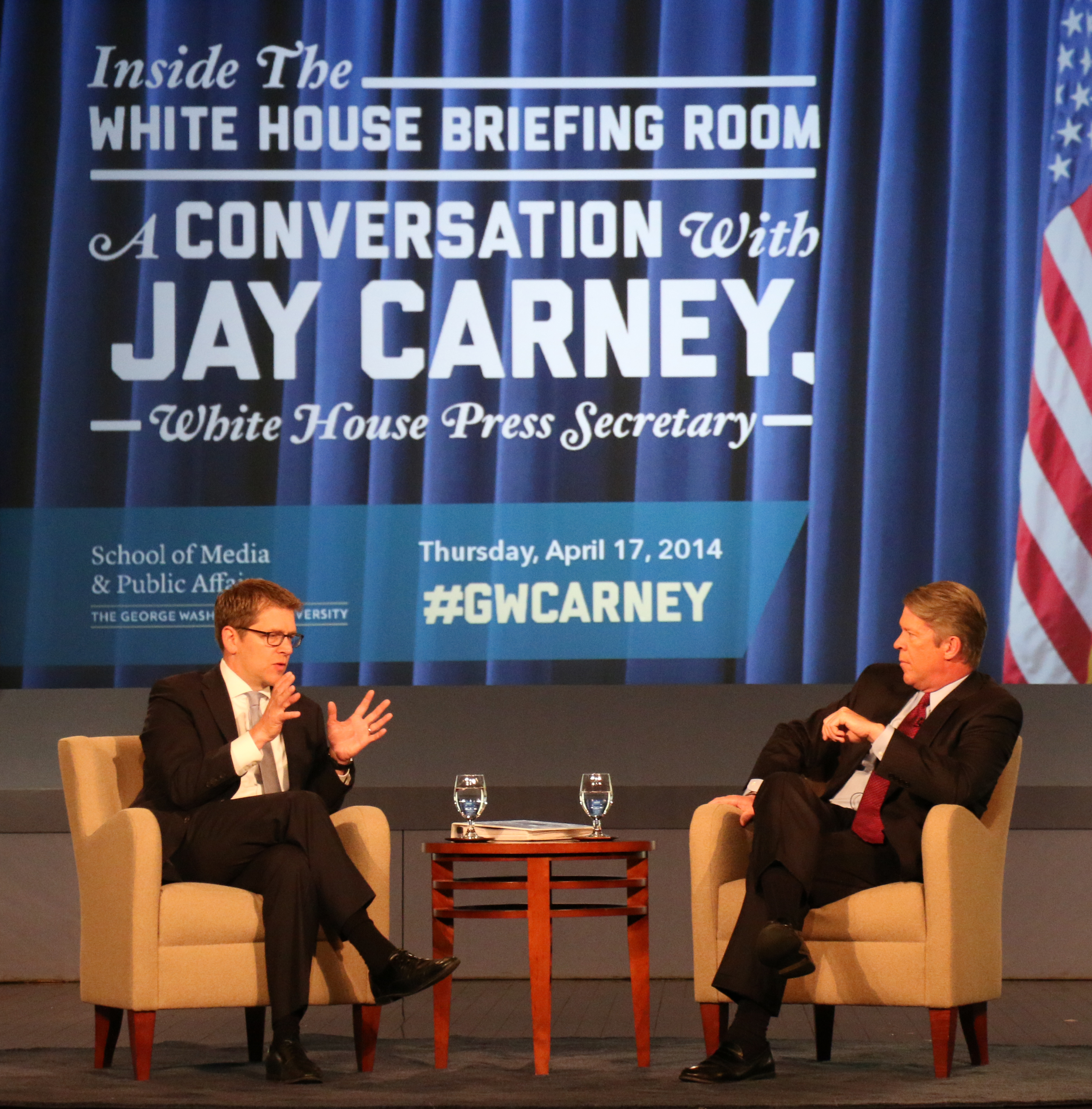WASHINGTON – Reporters should keep pressing for more access to the Obama administration and the federal government in general, according to White House press secretary Jay Carney.
“It’s absolutely the right thing to do, the responsible thing to do,” he said during a talk to a crowd at George Washington University Thursday.
Carney spent 21 years as a reporter, mostly at Time magazine. He understands the need for more openness, he said, adding that he always has “empathy, if not sympathy” for information reporters want from the administration.
President Barack Obama promised transparency the day he took office in 2009, stating, “My administration is committed to creating an unprecedented level of openness in government.” Carney, as expected, reiterated that notion and touted the president’s record with the press. He’s given longer press conferences and more than twice the number of interviews of his predecessor, President George W. Bush, Carney said.
According to the American Presidency Project, however, while Obama has given longer press conferences, he has also given fewer than many of his predecessors, totaling 100 in the six years since he took office. The study finds President Franklin D. Roosevelt gave the most press conferences of any leader in the last century – 881 throughout his presidency.
“It is absolutely the case today, and will always be the case, as it has always been the case, that the White House press corps will never be satisfied with the level of access it has to the president,” Carney said, conceding that it was the job of reporters to keep pushing for more.
And the press definitely wants more.
CBS News chief White House correspondent Major Garrett, who interviewed Carney as part of the talk, cited Obama’s reluctance to take questions about the “news of the day” at appearances, events or meetings with foreign leaders, adding that both President Bill Clinton and Bush were fans of that form of communication.
“He seems less comfortable with that, your team seems less comfortable with that,” Garrett said. “For anyone who’s in the building everyday as a reporter, that’s what we crave the most – a chance to put the question of the day, whatever the news is, to the president and get his reaction.”
The president has to decide there is a value to standing at the lectern and taking tough questions, said Tom Rosenstiel, executive director at the American Press Institute. He also said that relations with Obama and the press have eroded, particularly in his second term.
But it’s not just the press’ limited access to the president that rouses complaints from press advocates – it’s also the careful control of information released to the public.
An analysis of federal data by the Associated Press in mid-March revealed that the Obama administration denied more Freedom of Information Act requests than ever before, a record 546,574 times. The most-cited reason was the protection of national security.
Carney, meanwhile, argued that because of changes in culture and technology, this administration has had a closer reach to the public. The Obama administration is clearly tech-savvy, with social media accounts on Twitter, Facebook and Instagram. But according to Rosenstiel, “output and transparency is not the same thing.”
Transparency is in the eye of the beholder, Rosenstiel said, and the White House uses technology to its advantage to bypass traditional news media and stay on message, which any president in this day and age would do.
President Barack Obama’s toughest interview in 2012, according to Carney? On The Daily Show with Jon Stewart.

